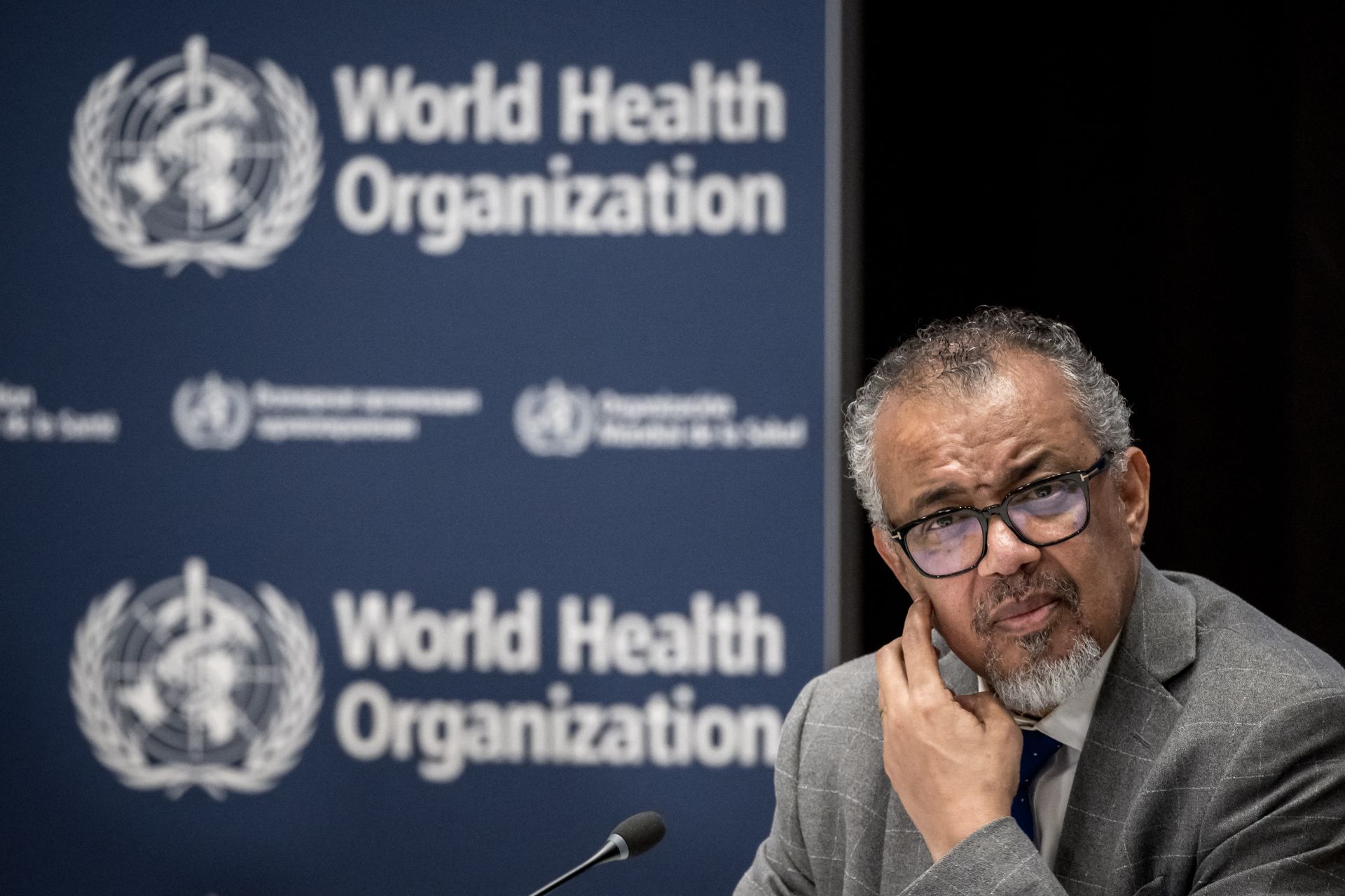- Home
- Middle East
- Following US Withdrawal, WHO Faces 20% Budget Cut

WHO Director-General Tedros Adhanom Ghebreyesus gestures during a press conference with the Association of Accredited Correspondents at the United Nations (ACANU) at the World Health Organization's headquarters in Geneva, on December 10, 2024. ©Fabrice Coffrini / AFP
In response to the US decision to withdraw its support, the World Health Organization (WHO) has proposed a 20% budget reduction, necessitating cuts to its missions and staff, according to an internal email from its director accessed by AFP on Saturday.
WHO is confronting a projected shortfall of nearly $600 million by 2025 and has "no other option" but to initiate cuts, explained Tedros Adhanom Ghebreyesus, the Director-General of the UN health agency, in a message sent to WHO personnel on Friday.
Following his inauguration, President Donald Trump triggered the US withdrawal and froze nearly all American foreign aid, including significant programs aimed at global health improvement.
The US had started the process to leave WHO during Trump’s first term in 2020. He justified his January decision by highlighting the disparity between US and Chinese financial contributions, accusing the organization of "ripping off" the US.
Consequently, Tedros had already warned at the end of January that WHO would need to implement cost-saving measures.
The US was the largest contributor to WHO's budget: in the last two-year budget cycle for 2022-23, they provided 16.3% of the organization's $7.89 billion total budget.
"Drastic reductions in public development aid by the US and other countries are causing major disruptions for countries, NGOs, and UN agencies, including WHO," emphasized Tedros in his email.
Even before the US withdrawal process began, WHO was already facing financial constraints and had started working on efficiency improvements over nine months ago, noted its leader.
"However, the US announcement, combined with recent cuts in public development aid by some countries to fund increased defense spending, has made our situation much more critical," Tedros further explained.
"Although we have achieved substantial cost savings, the current economic and geopolitical conditions make resource mobilization particularly challenging," he wrote.
In February, WHO’s executive board reduced the proposed budget for 2026-2027 from 5.3 billion to 4.9 billion.
"Since then, the outlook for development aid has deteriorated," Tedros reminded. Therefore, "we have proposed to member states a further reduced budget of $4.2 billion, a 21% decrease from the initially proposed budget."
The majority of US funding was from voluntary contributions for specific projects rather than a fixed membership fee.
"Despite all our efforts, we have reached a point where we have no choice but to reduce the scope of our work and our staff," Tedros concluded. He specified, "These measures will first apply at headquarters, starting with senior management, but will affect all levels and regions."
AFP
Comments